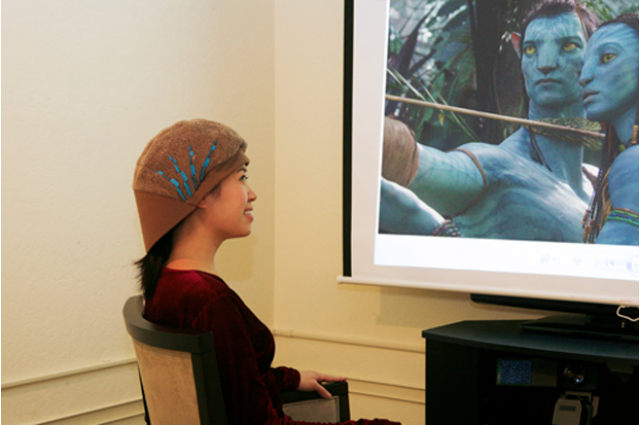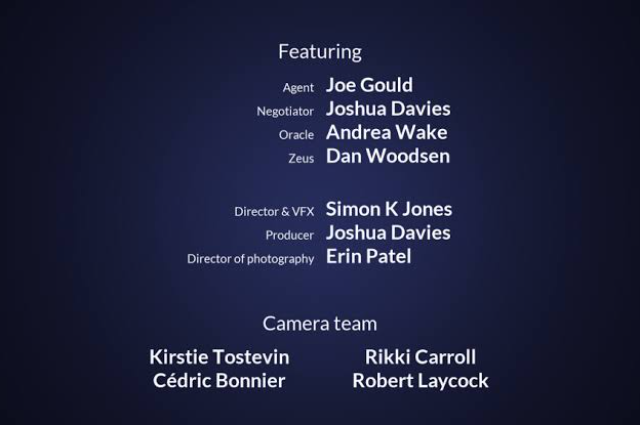Cinema is the most beautiful fraud in the world. - Jean Luc Godard
Certainly, most of us know that a lot goes behind creating a film: pre-production, production, post-production and other collateral proceedings. A script ought to be written, actors must be picked, a set is required to be built and inconveniences need to be taken care of. Making a movie is one devil of a job. Not only is the Behind-The-Scenes a herculean task, so is the After-The-Scenes (does a word of that sort even exist?) or in real words: the lingering impact of movies on the audience.
When we exit a movie theatre, we often find ourselves discussing the rating of the movie with our companions. Or perhaps there is your popular regional film reviewing YouTube channel waiting outside the theatre with a mic. Whatsoever the scenario you choose, we, the paying audience, find ourselves discussing the film we've just watched. But hardly do we discuss or at atleast attempt to understand what these films are doing to us. Most of our conversations revolve how sizzling the chemistry of the lead actors proved to be how brilliant the music incorporated into the scenes sounded. Have we ever come to a standstill for a minute to ponder upon the potency of movies on our minds?
The psychology behind films is an intriguing phenomenon. Simultaneously, the psychology behind an audience is an even more alluring phenomenon. From the vantage point of a director or filmmaker, a film playing on screen is nothing but a meticulously curated series of scenes and sequences adjoining synchronised dialogues and music. On the contrary, from the vantage point of a viewer, a movie is a story coming to life, even if only for a few hours inside an air-conditioned and darkened room. Whilst most of the average viewers, like you and me, are able to look at films for what they essentially are: films. Whilst films can replicate real-life occurrences or be inspired from them, ultimately most of us do get the picture- movies are pieces of fiction. Well, now the question arises: Why are some viewers unable look at films for what they are? A meagre amount of of distress after watching a true-crime documentary or one night's worth of sleep after watching a horror film are all completely normal, very humanlike responses to emotional or provoking content in films. A small portion of the audience, though, are seemingly unable to reel themselves away from these responses.
In March 2022, a young man, allegedly a die-hard fan of popular Telugu actor Prabhas, died by suicide after the actor's movie Radhe Shyam received negative comments and criticism upon releasing. (Source: timesofindia.com/entertainment)
In 2017, it was reported that a 17-year-old boy from Kolkata killed himself a few days after watching a horror film that deeply disturbed him, according to his family. (Source: ndtv.com/india-news)
Roll Camera Action:
Sequences and actions inside the brain

In order to understand the impact of movies on people, it is foundational to grasp the basic concepts of neural activity and neural signals produced in our brains during the course of a film. fMRI studies performed on viewers whilst they watch movies has revealed shifts in neural activity. Further observation revealed the activation of areas of the cortex associated with visual and auditory input, the visual and auditory cortices respectively. In layman's terms, this means that the brains of viewers do indeed respond to the images and sounds displayed in a movie. Or in other words, movies are stimulative enough to be able to spark noticeable and measurable changes in brain activity. When you experience fear when watching a horror film, a part of your brain called the amygdala is activated. When you experience joy after watching a feel-good film, your brain releases the neurotransmitters serotonin and dopamine which are often referred to as the 'happy chemicals'. When we are faced with plot twists in a movie, there is always this one friend or family member that says, 'I knew this was coming all along' but they didn't. Thet either want to seem like the brainy in the group or they have been affected by a phenomenon known as the Hindsight Bias. In simple terms, hindsight bias is the tendency to believe that after an event has already unfolded, one had predicted the event all along. When listening to catchy songs or some music that you really enjoy, the pleasure centers in the brain are activated triggering the release of dopamine. These are a few responses captured in our brains when watching a film.
Well, now that I know films influence my brain activity, does thus impact prove to be productive for me?

The answer to this question may prove to be subjective. Impact, in its very core, can be bifurcated into two: good or positive impact and bad or negative impact.
Good/Positive impact of films:
Film as dream, film as music. No art passes our conscience in the way film does, and goes directly to our feelings, deep down into the dark rooms of our souls.
- Ingmar Bergman
Films hold immense power to impart meaningful elements in the minds of viewers. Below mentioned are some of the productive and positive aspects of films:
- Films serve as a medium of amalgamation across human differences: Films allow viewers to live multiple lives. An Indian can live the life of Middle eastern labourer or the life of an American millionaire. Films offer opportunities that reality doesn't.
- Films function as recreation post a lengthy day: Sometimes, all we want to do after a tiring day at work or school is to put our feet up and unwind. Films are undeniably one of the best ways to relax and rejuvenate.
- Films can be a powerful educational tool: I'm sure most of us would enjoy watching a 30-minute documentary about the consequences of reckless driving rather than reading a five-page pamphlet written in an awfully tiny font explaining the same. Incorporating educational and awareness programmes into films can ensure its wider reach amongst audience.
- Films offer employment opportunities: The making of a film requires massive manpower as well as creative power. Films extend promising employment opportunities for thousands of people throughout the year.
- Films loudly affirm silenced voices: The most powerful aspect is the potentiality of films to bring the woes of the oppressed into the spotlight. Cinema, around the years and across the world has brought gross human rights violations to the mainstream audience.
Bad/Negative impact of films:
For me, cinema is vice. I love it intimately.
-Fritz Lang
Where there is good, there is bad. There is yin for every yang. All positive is accompanied by negative and cinema is no exception to this fact. Below mentioned are some of the negative and cynical aspects of films:
- Films often push malevolent ideas: Gangster films and potrayal of extreme violence negativity impact audience, especially the younger lot. They grow up to believe that violence and theft are snazzy.
- Films reinforce outdated ideas and stereotypes: Delivering stereotypes relating to gender is a common phenomenon in Indian cinema. This leads viewers to believe that these stereotypes have truth to their outdated ideas.
- Films sometimes sell toxic plots: Plots involving stalking and assault, for instance, instill false notions in the minds of viewers. They come to see these plots as binding to reality.
- Films increase screen-time: Gone are the days where one had to travel to a theatre to watch a film. Films are now readily available on platforms such as television, social media and OTT.
- Films may lead to a decrease in cognitive abilities and attention spans: The fast-paced nature of films sometimes compromises the viewer's capability to concentrate on other slow-paced activities such as reading.
Closing credits:

I hope that by the end of this comprehensive article, you could manage get an insight into the world of cinema and its impact on our minds. We often mindlessly watch films as they play before us. The next time you watch a film, pay attention. Analyse the aspects incorporated into the film. Ask yourself: Are they positive or negative? And when the closing credits roll on the screen at the end of the movie, you should be able to recall all that you've read on this article.
Or perhaps, should we add a special credit to me for writing this article?
Cinema is not only about making people dream. It's about changing things and making people think.
- Nadine Labaki
